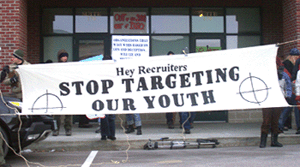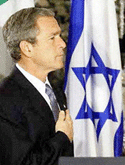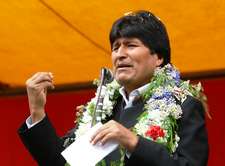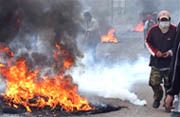
No More Recruits: Vermont Protesters Shut Down Recruitment Center
Around mid afternoon on November 30th, two groups of demonstrators converged in front of the Williston, Vermont, Military Recruitment Office in Maple Tree Place. Members of Mount Mansfield Union High Schools’ Peace Club and Iraqi Veterans Against the War led the rally march against military recruitment in High Schools. In all, 75-80 protesters took to the street with ambitions to shutting down the recruitment center for the day… Keep reading this report at





